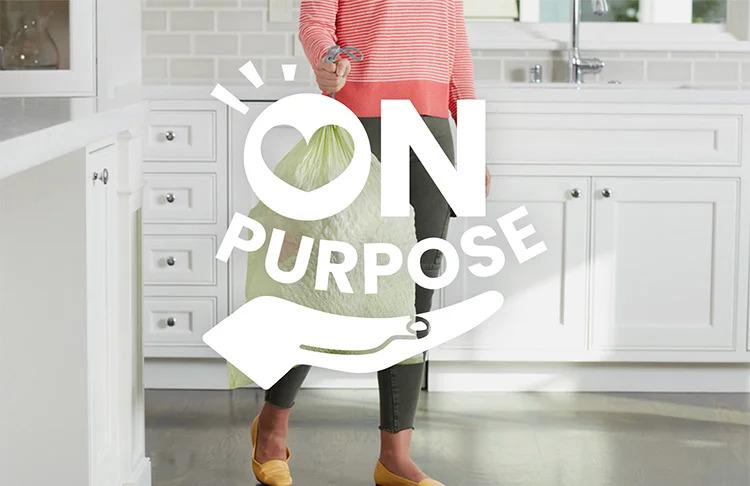How Glad Is Outsmarting Waste
Published 08-07-24
Submitted by The Clorox Company

Clorox’s environmental, social and governance goals are integrated into our IGNITE strategy because we believe they create value for our company, brands, people and communities. We’ve focused on areas where we can make the biggest impact, and much of our progress is realized through the work of our purpose-driven brands.
To learn more about how one of our businesses is making progress against its sustainability goals, we spoke with Chris Nielsen, director of innovation and sustainability – Glad, about how it’s moving to the forefront of effective and responsible waste management solutions.
Reducing plastic and other waste in packaging is a priority for Clorox. How has Glad made sustainability a key part of its operations?
Sustainability is core to how we think about the business long term, and we’ve embedded that thinking into not only our planning but our day-to-day operational decisions across product, production and packaging. We have clear, public goals and priorities for each of these areas along with built-in checks to ensure our business choices help us make progress against them.
How does Glad approach plastic waste reduction across its products, and what outcome are you especially proud of?
Because Glad puts the consumer at the center of everything we do, we don’t aim to reduce our plastic waste footprint just because we think it’s the right thing to do (which we do!); we also think it’s smart business. More and more consumers are demanding more environmentally conscious solutions, including ones that use less fossil-fuel-based plastic. That’s why we’re so proud of the smart design of Glad drawstring trash bags. They use a less plastic than the competitionˆ, allowing consumers who choose Glad to make a big impact with one small choice. In fact, if everyone in the U.S. chose Glad drawstring trash bags, we’d save a whopping 100 million pounds of plastic waste each year* — that’s huge!
Outside of products, what are other ways Glad is working to reduce waste across its operations?
We also look to reduce the impact of our production and our processes. We are proud to use 100% renewable energy at all our North American manufacturing plants. Additionally, 99% of the material used to make our packaging is recyclable.§
How is Glad partnering across its value chain and other organizations to harness new solutions to meet the challenges of a rapidly changing recycling market?
Recycling is critical to building a more sustainable, circular economy. That’s why Glad has partnered with Recyclops to help improve access to recycling locations to close the gap. When a consumer has recyclables ready for pickup, they simply place them in a transparent, Glad trash bag and notify a local Recyclops driver that their pick-up is ready. The driver picks up the recyclables from the curb and delivers them to recycling facilities specially equipped to recycle both the Glad bags and the items inside them.
ˆranges 7%-28% vs the top 7 competitors by volume IRI L52W 12/31/23.
* If existing non-Glad drawstring buyers switch to Glad drawstring bags. Estimates based on 2023 IRI sales data.
§ Applies to Glad trash, wraps, and food bag businesses as of CY2023.

The Clorox Company
The Clorox Company
The Clorox Company has long been committed to purpose-driven growth. We believe our purpose is clear: to champion people to be well and thrive every single day.
Our allegiance to this shared aspiration guides and inspires our company to act with swiftness and confidence toward a more socially and environmentally sustainable future. With an ambition to mobilize all of our people and brands, we strive to act as a force for positive, lasting change in three key areas:
- Healthy lives: Improving people’s health and well-being.
- Clean world: Taking climate action and reducing plastic and other waste.
- Thriving communities: Investing in our people and communities to contribute to a more equitable world.
More from The Clorox Company

